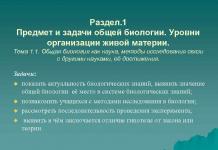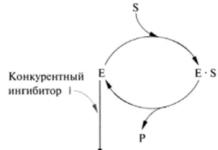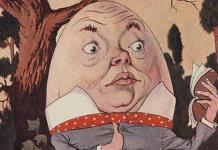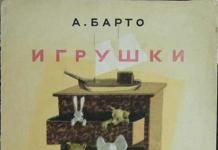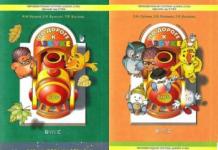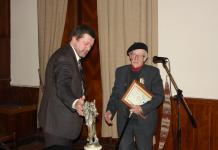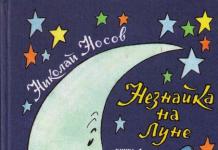As soon as the Russian publishing house "Makhaon" announced that it was preparing a reprint of all the Harry Potter books in translation Maria Spivak, the editorial office was literally bombarded with angry messages and accusations. The Internet boiled when the supporters of Spivak's translation woke up ... Reporter site De GRAY decided to remember why at the beginning of the 2000s he, like many other readers and critics, preferred the translation of Spivak to the official publication from ROSMEN.
First of all, I would like to note that the comparison of translations of the Potter from Marina Litvinova and her team (ROSMEN) and from Maria Spivak is far from a new phenomenon in Runet. They were always compared: the most diverse texts were written on this topic: from school essays and forum posts to newspaper articles and theses... Literary criticism, which seems quite natural to me personally, consistently favored Spivak's translations. The most famous example is a quote from the Vlast newspaper, whose analyst noted that Maria Viktorovna's translation has all the advantages that a publication from ROSMEN lacks. In 2001, Maria Viktorovna's translation of the Potterian was even nominated for the Small Booker Prize (in addition, Spivak has a silver prize for the Unicorn and the Lion Prize for the translation of Nicholas Drayson's novel).
Quite predictably, the discontent was primarily caused by Spivak's decision to adapt the names of his own characters. Moreover, the most frequent argument against her decision was the following statement: “Proper names are never translated! This rule is!" The strangest thing is that some of those who write such lines call themselves certified translators or students of philological faculties. The author of this article cannot boast of a diploma, although he is not at all alien to translation. However, I reserve the right to wonder where such a rule might have come from. Perhaps, comrades, these are your personal convictions. However, presenting your convictions as laws is, to say the least, strange.
Take from your bookshelf any book that is recognized as a classic of world literature for children (and Harry Potter, whatever you say, was written primarily for children, and the fact that it is interesting for an adult audience only speaks of the author's talent and the possibility of putting the work on a par with, say, "Alice in Wonderland"). Here, by the way, about "Alice". Is it really embarrassing for anyone that Tweedledee and Tweedledee appear on the pages of Demurova's classic translation instead of the original Tweedledum and Tweedledee? Is it embarrassing that the girl from the Chicken Villa is known to us as Pippi Longstocking, and not as Pippi Langstrump? And we all know Thumbelina, Cinderella, Captain Hook ...
Why is it worth making so much noise around Rita Vreeter, Alastor Moody, or Svercarol Charwald? Some of Spivak's adaptations of names and titles are real finds. Death Eaters, Privet Street, "At Zavitush and Klyakts", delighted ... Many readers who were with "Harry Potter" from the very beginning, could not help but feel in these localization options the romance of the corridors of the Hogwarts castle. Opponents begin to be ironic: why not call Harry Potter Igor Gorshkov? And because the translation of names for Spivak is not an end in itself. She translates them only when it seems necessary to her to convey the shades of meaning that Rowling put into a particular name, or in order to adequately convey puns and puns.
Traditionally, poor professor Snape gets the most from the disaffected (this is how Spivak adapted Snape's surname). By the way, his surname was also localized in official Western translations (Rogue - in France, Piton - in Italy, Kalkaros - in Finland ...).
This is, no doubt, a matter of taste. All this fuss with names can be called a matter of taste. However, I still cannot understand the indignant. After all, anyone who is dissatisfied can still buy books translated by ROSMEN, which suddenly many began to extol as the best (for whom did he leave us!), Although there are really a lot of complaints against him. Finally, the original always remains.
Enough about names. Let's talk about the more serious merits of Maria Viktorovna's translation. As she herself said in an interview with our portal, "my translations most accurately convey the 'spirit and letter' of Rowling's works." And this is the true truth. Spivak really managed to masterfully convey the author's style of Ro's mother. If you read the Potterian in the original, you could not help but notice how simple Rowling's language is: there is not even a hint of excessive flamboyance, there is no jumble of verbal constructions, there is no inappropriate pathetics and arrogance (all of the above features, however, for some reason are present in the translation from ROSMEN).
Rowling's narration is a living, fluttering butterfly, moderately bright and therefore graceful. Litvinova's translation is an attempt to put this butterfly on a needle and dry it. Moreover, her wings were also painted with markers: it is known that Litvinova periodically rewrote, distorted Rowling's proposals, and sometimes added those that were not in the original. The butterfly metaphor may have inspired me by the name of the publishing house Makhaon. In this case, it, like the names of Rowling's characters, speaks. Spivak's translation may not be perfect, but he spared our butterfly.
Probably, over the years of controversy, all these "arguments for Spivak" have been presented more than once. But after learning how many claims the Machaon's decision to publish Potter in this particular translation was “worthy of”, I thought it reasonable to remind the Potter fans of these very arguments. And in conclusion, I will note that I, like many others, were extremely pleased with this decision. This is truly the "Harry Potter" we have been waiting for.
Potter fans have waited! The Makhaon Publishing House publishes the Harry Potter books in the long-awaited translation by Maria Spivak. Successfully emphasized speech features of characters, play on words, speaking surnames and subtle humor retain the spirit and lightness of the original, thanks to which the book is read in one breath ...
In the first three days after J.K. Rowling's book "Harry Potter and the Deathly Hallows" hit the shelves, it sold several million copies. The Barnes & Noble online store, 48 hours after the start of sales, reported that it sent to customers ...
Comments on Vkontakte
Site comments
On the eve of the release of the new book by J.K. Rowling in Russian, a group of domestic Potter fans spoke out quite sharply against the translations of the series authored by Maria Spivak. On the Internet, they even collected signatures for, which now owns the rights to the Potter in Russia. Maria Spivak's translations cause a lot of controversial reviews, although for a long time they were considered a good alternative to translations in which the Harry Potter books were first published in Russian. But few people know what kind of person is hiding behind these texts. We decided to chat with Maria about the Potterian, unexpected fame and her own books.
Dossier: Maria Spivak
Maria Viktorovna Spivak was born on October 26, 1962 in Moscow. Graduated from the Faculty of Applied Mathematics at technical university, majoring in engineer-mathematician. Author of the novels "The Year of the Black Moon" and A World Elsewhere (written in English). Known for her translations of the Harry Potter series. In 2001 she was nominated for the Small Booker Prize for Best Translation from English. In 2009 she was nominated for the Unicorn and the Lion Award for Best Translation of Contemporary British and Irish Literature.
"Harry Potter" for fans - religion "
What do you think about collecting signatures against your translation of Harry Potter and the Cursed Child?
Here, glory, you came to me, I think. True, not in the form in which I dreamed of you.
How would you explain the behavior of fans advocating the old translation? By the way, criticism mostly comes from readers, not from professional translators. For example, the famous Maxim Nemtsov, who "dared" to re-translate "The Catcher in the Rye", which also caused a lot of indignation, believes that your "Harry Potter" is better than Rosman's. Are you not amused by this hysteria around your translations?
Why are fans being fanatical? By definition. This is the nature of this phenomenon. "Harry Potter" for them is a religion, not literary work, therefore, any violation of the canon seems to them blasphemous. And some of them, in my opinion, are sincerely convinced that the translation, in fact, consists only in the transposition of names and titles. They do not know that a foreign text can have (and quite legitimately) many interpretations.
Take at least "Winnie the Pooh" (where in one version there is Shasvirnus, and in the other - the immensely beautiful Skrabudu!) Or "Alice". Hysteria doesn't amuse me much, but it also has its own charms - for example, a terrible outrage that I dared to call Privet Drive Privet Drive, and not Yew Alley. Meanwhile, privet is exactly the same privet, typical for English hedges. Fans, on the other hand, do not know about it and do not want to know, they don’t see puns in the name of a dignified philistine street - they only require the preservation of their usual coordinate system. And this, I repeat, is natural, because we are not talking about literature, but about a cult.
Fans mostly resent some of the names and titles. Why did you translate them into Russian at all? Perhaps it was worth just making a glossary with the disclosure of their meaning, and leaving the original names in the text? For example, Zloteus (originally even Villain) Snape is a cold, gloomy character, but not a villain at all.
Snape remained thanks to the editor - with rare exceptions, I did not insist on saving the names. Perhaps it was worth making a glossary initially. But that would not be my story. I translated names and titles. Why? It seemed natural to me (especially since it all started with a children's book). What would I do now? Do not know. Most likely, I would not have taken up "Harry Potter" at all - not because of the dissatisfaction of the fans, of course, but because "each vegetable has its own fruit."
Earlier, you said that Potter fans even wrote you letters with death threats. This is, of course, terrible, but did it really scare you?
I think anyone in my place would feel unpleasant and slightly uncomfortable, but I consoled myself with the fact that I spend a lot of time traveling and "they won't catch up with us."

"Harry Potter" from the book is rapidly turning into something like a Pokemon
Why were your online translations at one time appreciated by many fans above Rosman's, at that time official, and now they cause so much negativity?
I think that unofficial, "samizdat" is still attractive in the minds of people, moreover, "Harry Potter" was still just a book then. And the quality of my translations was really higher. But now, for grown-up fans, this very quality is absolutely not important, but what is important is what everyone is used to, because "Harry Potter" is rapidly turning from a book into something like a Pokemon. In general, life is hard, the negative in relation to everything in the world has accumulated in excess and requires an exit.
Why did you work on the translation of the Potterians under the pseudonym Em. Tasamaya (or M. That same)? I have heard that the pseudonym is often taken because of the "unattractive" surname, but this does not apply to you.
At some point, Rowling's agents sent a request to our then-site Harry Potter Research Institute to remove my translations. We deleted, and some enthusiasts (I don't remember who, but thanks to them very much) posted them under a pseudonym, which was not at all necessary to take, but it was fun. This is how Em came to be. Tasamaya - as a joke.
How much does the original translation of the four Harry Potter books, posted on the Internet with the mark "amateur", differ from the final, already officially published by "Machaon"?
I haven’t compared, so I don’t know how much. But I know what's different - it's inevitable in editing.
Who corrected the translation yourself or the editor? Don't you think they look a little ... half-hearted? Some of the names and titles returned to the original, and some remained translated.
I worked on the changes together with the editor (well-known translator Anastasia Gryzunova - Approx. MirF). Compromises in such cases are inevitable. Therefore, from admirers of my previous translation, I received many letters with curses for the fact that "killed them Harry." Directly according to Kharms: a new idea kills a person who is not prepared for it.
How do you rate the translations of the potterians from Rosman? What are the key differences between Rosman's translations and yours?
I cannot evaluate them because I have not read them. I did not get acquainted with Marina Litvinova's translations, I started translating before her, my translation was already on the Internet, people wrote and asked for more, so I had a great incentive to work further. And the books were republished because Rosman's translation rights expired, and the publishing house that bought the rights gave preference to my work. And now, to my knowledge, the books are selling very well, even beyond the expectations of the publishers.
How do you feel about Rowling's decision to continue the Harry Potter saga?
This is her right. And, in spite of my attitude to the commercialization of the Harry Potter brand, I am sure that as literature her new work will be no less beautiful than all the previous ones.
About the new book

"The translator is an actor, he puts on the" masks "of the author and heroes"
“Since childhood, Masha Spivak dreamed of becoming a translator, but for some reason she learned to be an engineer-mathematician ... but fate turned out to be favorable - during the crisis of 98, Masha lost her job.” It sounds both sad and a little sarcastic. I wonder if this text on the back cover of your book "Year of the Black Moon" was written by you? In this case, you have good feeling humor.
I no longer remember all the circumstances of writing the annotation for the cover of The Year of the Black Moon. I think it was a joint work - mine and the publishers. As for dismissal and job loss, it turned out to be not sad at all for me, on the contrary, it became literally a gift of fate, and it would be ingratitude on my part to speak sarcastically about it (although sometimes it’s hard to resist for the sake of a word of mouth). But I have known for a long time how easy it is to run into a sarcastic answer from heaven, and I try not to joke with them once again.

 Your book A World Elsewhere is written in English language... Can you explain the difference between writing a book in Russian and English - as a person who experienced it for himself?
Your book A World Elsewhere is written in English language... Can you explain the difference between writing a book in Russian and English - as a person who experienced it for himself?
There is a difference between languages, and there is no difference between creating a book in one language or another - the stream of words comes from somewhere above, just have time to write it down. English, perhaps, gives a little more freedom, like any "someone else's mask", but nothing more.
Your son Nikita has been working on the translation of Ann Tyler's Spool of Blue Thread. Is he also a literary translator? Did you contribute to his labors in this field?
"Coil" is Nikita's first translation, time will tell whether he will become a literary translator. But, perhaps, we can say with confidence that I contributed to his involvement in translation - thanks to me he was born and thanks to my carrot and stick he taught English almost from the cradle. The rest is the intricacies of fate and his personal achievements (he already knows five languages).
What translations are you currently working on, and are there any ideas for your own books? I only know about the translation of John Boyne's book The Boy on the Top of the Mountain.
I also worked on the editing of Spools of Blue Thread, but otherwise I am now doing what I write for myself. Well, I travel, taking advantage of temporary freedom to the fullest.
Do you think the translator is an artist? How much is it permissible for him to create on someone else's plot, in an already written work?
The translator is more of an actor: in the process of work he puts on the "masks" of the author and his characters. As for someone else's plot, the key word here is “alien”, in a foreign language - in a different environment any work will inevitably be reincarnated. The translation is similar to the film adaptation - it completely depends on who played the role and how, with what intonation he uttered a particular phrase. The bounding boxes are blurred. Take a pun based joke, for example. Is it possible to translate it without taking liberties, without completely altering the phrase in order to keep it funny? But is it possible at the same time to completely deviate from the situational sense inherent in it? The answer "no" to both of these questions makes you maneuver between words and meanings - sometimes literally headlong.
In 1971, the well-known Soviet literary critic and philologist Mikhail Gasparov, in his article "Bryusov and Literalism", expressed a seditious thought that one should not strive for absolute universality, that "different readers need different types of translations." Do you agree with his opinion?
Do you have your own concept of literary translation?
No, and I'm afraid I won't grow up to that.
What genre of literature do you think currently prevails on the market over all others? And who, in your opinion, orders the tune - is it really a mass reader or, on the contrary, is the demand organized by large publishers?
In my personal poorly organized universe, it often seems that only Harry Potter prevails over all genres and will forever prevail (and no one will ever be interested not only in my own unfortunate works, but also in my other quite wonderful translations). But seriously, science fiction and detective stories, such a feeling is created at first glance, no? However, it would be better to ask the major publishers about who orders the tune - or the general reader, if you happen to be caught.
Judging by your site, you are not indifferent to the songs of Sergei Shabutsky and even were inspired by them when writing books. What other artists do you like to listen to?
Not that I was inspired by them, I just wanted to bring them to the people in an accessible way. Actually, I don't really like the author's song (besides Shabutsky, there are also Shcherbakovs, but not for alphabetical reasons), and my musical tastes are quite eclectic. At one pole, for example, Saint-Saens' Dance Macabre and Bert Ambrose with his orchestra, and at the other - the Leningrad group (the choice of names is insignificant and random, just what came to mind).
In one episode of The Simpsons, Lisa Simpson discovers the "terrible" truth about the "teenage" book industry: that all her favorite books are created in special conference rooms, stories are based on market research and are written by workers sitting on tablets who urgently need money. And publishers are drowning in profits, and teens get ten books a year, written by a dummy author. Do you think such a prospect is possible in the future or, perhaps, has already been partially implemented today?
This is very likely, like all dystopian scenarios of the existence and further development of our insane, insane world. But, I think, the sprouts of the true, good, eternal will always come from somewhere, somehow they will break through.
About Harry Potter, which caused a mixed reaction from readers. Alla Steinman, director of the Phantom Press publishing house, announced this on her Facebook page.
“Masha Spivak died today. My dear friend, forgive me for not saving you. RIP. Details about the date of the funeral will come later, "Steinman said.
At the moment, the circumstances of the translator's death are unknown.
In 2016 Maria Spivak worked on the translation of the last eighth part of the series of books by the writer J.K. Rowling “Harry Potter and the Cursed Child. Parts one and two ”.
Then the translation caused a mixed reaction among fans of the saga. Fans demanded that the work on the text be entrusted to a person who "could avoid the" ad-libbing "and free retelling."
The very news that Maria Spivak will be engaged in translating the book upset fans of the Potter universe. Most of them began their acquaintance with a series of books with a translation from the ROSMEN publishing house. However, in 2013, the publishing rights passed to the Makhaon publishing house, and since 2014, the saga has been published in an “alternative” translation from Spivak.
After the book was published, heated users in in social networks published fragments of the text, in which they found numerous errors, and even created a petition against the publication of the book with the translation of Maria Spivak. One of them was signed by over 60,000 people.
Most of the readers complained that Spivak, trying to adapt the language, literally translated the names and surnames of the characters and played them in the form of a pun. So, Severus Snape turned into Zloteus Snape, Luna into Psycho Lovegood, and Madame Trick into Madame Moonshine.
Such adaptations caused outrage among fans. In particular, readers noted that by the end of the saga, Snape's hero is revealed with positive side, and Zloteus Zley, translated from Spivak, sounds unambiguously negative.
Despite the dissatisfaction of the fans, the publishing house "Makhaon" refused to change the translator.
Maria Spivak in interview she confessed to the Gorky edition that she was not familiar with other translations of the Harry Potter books, and when working on the text she started from the meaning in the names and “tried to convey the same thing in Russian”.
“Severus Snape is a name that also sounds frankly harsh, although mine certainly sounds harsher. However, the word "Zloteus" implies both "evil" and "gold", so the double subtext of the character of this character has not gone anywhere, "the translator explained the origin of the name" Zloteus ".
Maria Spivak also reported that since the release of the first book, she had to face numerous threats from the fans of the saga.
In addition to those who opposed the transfer from Spivak, there were those who supported her. So, the translator of the fifth book about Harry Potter stated that “the translator should be guided by the opinion of the public, but not be led by it,” emphasizing that the adaptation of names is the business of Spivak herself.
Maria Spivak is a Russian writer and translator. It gained the greatest popularity after the release of translations of the series of books by J.K. Rowling “Harry Potter and the Cursed Child. Parts one and two ”. She is also the author of two novels, The Year of the Black Moon and A World Elsewhere.
In 2009, Spivak was awarded second place in the "Prose" nomination for the translation of the novel "The Book of Birds of East Africa" by the British writer Nicholas Drayson.
Premiere of the play "Harry Potter and the Cursed Child. Parts One and Two ”took place on July 30, 2016 in London at the Palace Theater. The production was directed by John Tiffany. The action of the "Cursed Child" begins immediately after the finale of the seventh part of the series - "Harry Potter and the Deathly Hallows".
Harry Potter and the Cursed Child. Parts One and Two ”were released in English immediately after the premiere of the play, on July 31st. In Russia, the series went on sale on December 7, 2016.
When did you first read Harry Potter?
In 2000, a friend from America sent me the book. Her husband worked in Russia - he brought Harry Potter as a present. I remember I lay down with a book on the sofa and did not get up from it until I finished reading.
Did you learn English at school?
No, I studied German at school. I studied English with a tutor that my parents took me.
When did the desire to become a translator appear?
In general, I am an engineer-mathematician by education, I graduated from MIIT. After university, she translated for several years scientific texts for the Academy of Sciences, and then got a job as a manager in an office that sold computers and software, - and began to make translations of instructions and other technical things for them. The head of this company also knew English - and began to bring me his favorite books. He really liked Douglas Adams - and I usually give in if someone praises the book. I read The Hitchhiker's Guide to the Galaxy and started translating it to read aloud to my family. Then 1998 happened, I was fired, and my husband said to me: "Stop looking for a job, come on, you will be a translator." Not in the way that I should. But what can I if I want.
I had no idea then what kind of profession it was - I just translated it as it is. Then I noticed that I was repeating many words, and began to rewrite, use synonyms, get rid of constructions unusual for the Russian language with a pile of subordinate clauses. In general, it was a student translation. Harry Potter was going very differently.
Did you also translate Harry Potter for your husband and son at first?
Yes. Now it seems to me that it really was witchcraft: I read the book in one sitting, and the next day I found myself at a large computer. Although Nikita (son of Maria Spivak. - Esquire) then he was 13-14 years old, and he could already, perhaps, read in English. Therefore, in my version, he only knows the first book. After any of my translations, books and stories, he did not read. Shy.
What are you ashamed of? Afraid that you will not like it, and that will make it awkward?
Do not know. Shy. I'm his mother, not a translator. Although he helped me translate the last play (we are talking about the play "Harry Potter and the Cursed Child." Esquire).
And amateur translations of "Harry Potter" were made by you, weren't you?
Yes, there were many translators on the Internet, we competed in speed with each other - for us it was a really fun game. My husband tried to give my translation to the publishing house, and when they didn’t take him, he created the site of the Harry Potter Research Institute, where he posted these texts. He made the site alone, although he presented it as a serious project with large quantity people who are supposedly working on it. My husband read the comments to me - then they praised me very much, of course. Three thousand people came to the site, and everyone wrote some jubilant messages, what a fine fellow I am. Naturally, this was encouraging. But, in fact, my only real love was only the first book. Then the people began to demand, and I translated for them - there was nowhere to go. I didn't know that this story would have some kind of continuation.
That is, you only had love for the first book? And to the rest?
Dislike is out of the question. For a very long time, I was satisfied with everything that is there. Then, by the fourth book, a film was released - and Rowling herself, under pressure, began to take certain decisions... And these moments upset me a little. But again, I didn't really read, I translated. And when you see the book that's this thickness, over which you sit for a long time at the computer, there will not be much love - this is not the same as lying on the couch and then going for a walk.
At first "Harry Potter" was just a book, but now it is a cult, "harrypotteria". No other book has had such an impact on people's lives.
Anyway, I never liked fantasy. At first, "Harry Potter" was just a fairy tale, and then this increased detail began - the heroes began to compose biographies. Rowling, for example, said Dumbledore was gay. Well, why is it in a children's book? Somehow it’s not so interesting anymore.
How long did it take to translate The Philosopher's Stone?
I won't say for sure, but not a lot, about three or four months. Not that I pounced - there were other things. Some things were invented on the fly - well and not very well.
You see, at first "Harry Potter" was just a book, and you had to behave with it like a book: in many countries, names were translated, as I did, because they are speaking. It was like that until a certain moment, and then "Harry Potter" became ... I still don't understand what it is. This is something unique. And a book, and a movie, and a computer game, and a cult of worship - all this harrypotteria... And this phenomenon has no analogues, in my opinion - no other book has so much influenced the lives of people around the world.
Now I also have a different opinion about names. Now it seems to me that they should be the same as in the original. But I could not foresee a worldwide cult, and then it was stupid to change shoes. By the time Makhaon decided to publish my translation, I no longer thought about this story at all. I took on the seventh book under great pressure from those who are accustomed to my style. This feeling can be compared to marriage: the first year with a person is not like the thirtieth, and love from passion is not like love for money.
Is Harry Potter a commercial story for you now?
No, it’s not like that. In 2013, when Rosman ceased to own the exclusive rights to Harry Potter in Russia, the Azbuka-Atticus publishing house offered to publish my translation. I refused because I was not satisfied with the harsh editing - when the editor considers himself more important than me. This is too expensive for me a thing. In general, I am rarely edited, so I am capricious in this regard. Six months later, Makhaon came to me with much better conditions (Makhaon is part of the Azbuka-Atticus publishing group. - Esquire). They said they would leave everything as it is. Such a respectful approach suited me, because the most important thing for me is not to be offended. Plus, they appointed a very good editor: Nastya Korzunova is very smart, she sees flaws like a computer. I calmly entrusted her with the text and allowed me to change a lot: literally two names I asked not to touch, and everything else - please.
What are the two names?
I asked to leave the Moogles. It seems to me that it conveys the meaning better. There is disdain in this word - in contrast to the word "muggle", phonetically similar to "magician." Rowling coined the term muggle at a time when there was no question of any political correctness, this word is saturated with arrogance ( muggle- derived from mug, which in British slang means “ foolish man which is easy to deceive. " - Esquire) And it seems to me that in Russian the Muggles convey this attitude much better. At least that's what it seemed to me then. Now I don't care. Want Muggles, take Muggles.
And the second?
Hagrid, not Hagrid, because there is something spitting about Hagrid's name. And Hagrid is a bit ogre.
Did you come up with the names and titles yourself or did you consult with someone?
Mostly by herself. They were easy enough to come up with, but it also happened that I got stuck on some. And then my husband and I went to bed with the thought of this name - and thought, thought. But he rarely came up with something good.
Do not remember what names there were difficulties with?
It was difficult with the pen of Rita Vrita. In the original it is Quick-Quotes Quill, and I called him principled ("Quick-Writing Pen" in Rosman's translation. - Esquire). We thought for a long time and came up with a lot of good things, but everything was not right. As a result, the meaning turned out to be a little different, but it seems to me that a Russian person understands such a play on words like no one else.
What about the street where the Dursleys lived? The fans are very picky about your option.
Why Priyuchinnaya? Amazing nearby. In the original, it is called Privet drive, from english privet translated as "privet" - this is a typical plant for England, a classic, boring, but very resistant. In "Rosman" they named the street Tisovaya - it is completely incomprehensible for what reason. This has always amazed me.
Fans suggested an alternative: don't translate street names at all. What would you do now?
Streets, perhaps, I would still translate. Still, the context needs to be clear: not everyone speaks English. In general, there are many controversial points. For example, my director's name is Dumbledore. The name was left by the editor, because she thought it sounded better than Dumbledore - an allusion to the bumblebee that hums (name Dumbledore comes from english bumblebee... According to Rowling, she gave the character that name because of his passion for music: she imagined him walking and humming under his breath. - Esquire). And I agreed, because Dumbledore had an object, which I called "dubldum" (in the translation of "Rosman" - a pool of memory; in the original - pensieve... This word, in turn, comes from English pensive(thoughtful) and has latin roots: pensare means to think. - Esquire). With Dumbledore, I would have had to call him something else. That’s the only reason I’ve given permission to leave Dumbledore. And so I thought: let it be as people are used to.
You probably know what kind of controversy there was on the Internet about names ...
I do not know everything, but I know something. It is impossible not to know when you get “dead, you bastard” on your phone.
Seriously?
Yes, they threatened me, they wanted to kill me. But I believe in such things, I start to be afraid. As for the names: at one time, my translation was logical. And now they [the fans] are kind of right, because Harry Potter is a whole world, and it’s better if everything sounds the same. I even spoke with my publisher that it would be nice to publish the series again, but change the names. I, of course, will not undertake this anymore, but if the editor took it, then why not? I don't understand why this is all so difficult. Previously, any number of translations could come out - like with "Alice in Wonderland" or "Winnie the Pooh". Maybe they will decide with "Harry Potter". After all, my text itself - and I'm sure of this - is better than another Russian translation, because it was done too quickly. That's why, if only.
You seem to have not read the Rosman translation?
No. I only read Harry Potter in English, and then on the go. But at some point, films began to be released - this is how I found out how the translation of Oransky, Litvinova and others sounds. In principle, I realized that such a translation into cinema suits me, although I don't really like films. Then Rosman got very good translators, but they became hostages of the translation of their colleagues: that is, they did not come up with Hufflepuff, which, in my opinion, sounds very strange.
Have you talked to the people from Rosman?
No, the publishers did not want to see or hear me, they hated me.
Truth? And how was this expressed?
My husband told me what they said about me at Rosman. Not that disgusting, but from their words it became clear that it was impossible to know me and that I, with my translation, had sunk to the very bottom that actually exists. Something like that. Therefore, even if all the translators had run away from them, they would not have taken me.
Where does this attitude come from?
Because I was popular on the internet. Then the copyright holders, Rowling's agents, forbade me to upload translations - and I gave the site to the fans. It still exists in some form, but I don't go there at all.
Do you have a favorite hero?
It doesn't work for me. There are many.
Do you need to immerse yourself in the characters in a special way in order to speak like they are?
It happens to me somehow by itself. Although, for example, the same Hagrid says so, because I represented my school friend - she is a nurse in the children's intensive care unit. Not completely, of course, but they have something in common.
Before doing translation, what were your favorite books?
Oh, I have a lot of favorite books, and it’s impossible to name the very best. For example, The Forsyte Saga is not even my favorite, but some kind of special book for me. I read it when I was 12 and then reread it almost every year. Although in English the first story did not impress me at all. It was the work of a translator that fascinated me. For a long time, Nabokov liked him very much. Now, for some reason, he suddenly stopped. It's the same with The Master and Margarita.
Harry Potter made me the translator I was born - I just didn't know about it. They touched me with a magic wand, and I went my own way.
Since becoming a translator, I have almost ceased to be a reader. For myself, I read only in English, because with the text in Russian a reflex worked for me, and I began to mentally edit it. So I mostly read American, English literature and, as a rule, all sorts of nonsense, because before bed.
Do you remember the first serious translation work?
Yes, "Escmo" gave me for translation The volcano lover Susan Sontag. I felt so responsible that I finished it in four months. The book was very difficult, I actually had to rewrite it. There is another translation of the novel - so it sounds like bullshit. And I wrote very beautifully. I sat for a long time every day. My son went to school, my husband went to work, and I sat at the computer and sat until the evening, and then fell on the sofa.
Was that during Harry Potter?
Hardly at the same time. I got noticed because of Harry Potter. A fairly well-known person in the field, Max Nemtsov, found out about me and decided to ask for help in translation - it turns out that he made me a real translator. We met in a cafe, talked for a very long time about Rowling, about books in general, about this and that. I felt like I had accidentally fallen into the hands of the saints and rejoiced that I was allowed to become part of the community. And then Max gave me a book for translation - I forgot which one, like a detective - and I didn't like it at all. I honestly said this. And then Max rejoiced - he said that it was a test and that in fact he was going to give the book to Sontag. Well, here already without talking - I, without even reading, sat down to translate. In the process, it already became clear that this is a very difficult book to translate, but I managed it anyway. True, I read the following books first.
Are you working on something right now?
No. I wrote a series of stories in 2013, but then a lot of things came up, so I just finished it now. I want to publish it somewhere. I don’t know yet what will come of it.
Do you want to write your own now?
I wanted this a long time ago. Although, I must admit, the work on "Harry Potter" was not so frequent and not so hard, but I am happy to free time was doing nonsense. So maybe I'm not that much of a writer. Although everyone really likes the cycle of stories - I checked it on different people.
Let's get back to this scary fan story. When it started?
As soon as "Makhaon" published the book with my translation, then it began - and the further, the worse. And before the play (Harry Potter and the Cursed Child. - Esquire) they were completely pissed off: they were collecting signatures on a petition so that they would throw me out, and they wrote to me that I should die and that they would kill me. They wrote that they were following me, but I immediately believe in this.
Did these threats ever translate into real action?
Not yet, thank God. Maybe someone was following me, but I did not see them. I don’t like to remember it.
Are you not afraid to leave the house because of this?
Thank God, I quickly forget everything, so I'm not very afraid. Now I’ll talk to you and I’ll be afraid for some time.
It is very scary that fans of the wizarding world of "Harry Potter" can wish someone death.
Somehow it has recently become accepted in our country. In fact, they want to kill many.
Why did you take on the play despite the threats and petitions? Why was it important to you, if the former interest in "Harry Potter" was no longer there?
Because of money. I was offered an amount that other translators are not offered - not by page, but so that I would agree. We can say that "Harry Potter" seemed to give me a present so that I could live in peace. Therefore, naturally, I was worried about the fate of the "Cursed Child". Then the publishing house told me that they did not even think of taking on someone else - even despite the petition. Because books with my translation were bought very well, and this is an indicator. Although, maybe they came up with it for me.
Do you even care about reviews? Do you listen or try to avoid negative comments?
There was a period when I tried to avoid any comments, because they affected me so strongly that my translation began to seem horrible to me. I wished they would forget about me and say nothing. Then it passed, also because all sorts of smart people, whom I believed, was told that it was stupidity. After all, there is an editor, publishers - and they probably understand better what is good and what is bad.
I don’t know if we can talk about vanity about you, but are you proud of your work?
Whoever wants to, of course, can [talk about vanity].
I'm interested in you. How do you feel about your work?
So that would publish a new version.
Are the negotiations with the publisher about the reprint of the books moving somehow?
For now, the publisher, who periodically calls me to find out how I am doing, listens to me patiently and says that they are "languidly talking to agents about this topic." How true this is, I do not know.
Do you think "Harry Potter" made you happy or, on the contrary, brought you more problems?
He made me the translator I was born - I just didn't know about it. So there is something magical about this story. And for that, I admire Harry Potter. They touched me with a magic wand, and I went my own way. Even my character has changed. I did not envy anyone, because I was minding my own business. And I well remember what happened the other way around, when I did some nonsense. Thanks to "Harry Potter" I was able to become a real translator and, moreover, began to write myself - and I have been told about this since childhood: you are a writer with us.
Did Harry Potter teach you anything? The book itself, not working with it.
Yes. I believed that magic exists.
Do you find any evidence?
Yes. Of course, magic works differently from the book - without wands. But it does exist. It's just that we are very tight and do not use it. I can feel it.
On July 20, 2018, 55-year-old writer and translator of books about the sorcerer Harry Potter Maria Viktorovna Spivak died. Alla Steinman, the head of one of the publishing houses, announced her death. The information about the death of the talented Russian writer was confirmed by Olga Varshaver and her other colleagues.
Biography and personal life Maria Spivak, after translating books about the sorcerer, began to interest the press. The author's translation caused incredible criticism from the citizens of Russia and fans of Harry Potter. Fans of the boy-sorcerer even created a petition in which the demand for the removal of the Russian woman from the transfer was announced. original text... More than 70 thousand people voted for the removal from translation of the book "Harry Potter and the Cursed Child". Now the media is discussing the death of Spivak and the date of the farewell ceremony.
Biography and personal life of the scandalous translator Maria Spivak
Maria Viktorovna became popular thanks to the successful 10 translations of J.K. Rowling's books. More than 20 texts by other authors have also been translated into Russian. In addition to making translations, the Russian woman wrote her own novels. The most famous were the "Year of the Black Moon" and english book"The world is in a different place." Nine years ago, Spivak received the "Unicorn and Lion" award. This award was given for the best completed translation of Irish and British texts.
The writer decided to translate the original of famous books about the sorcerer at the beginning of the 2000s. The first 4 books about the wizard were translated by Maria Viktorovna within two years, and they were published on the Harry Potter website. Critics gave mixed opinions on the work of the Russian translator. Nevertheless, Spivak ended up on the long list of the Small Booker Prize. At the end of 2002, Maria received a letter from the copyright holders, after which she was not allowed to translate the literature of foreign authors under her initials.
A decade later, employees of the Azbuka-Atticus publishing house contacted Spivak, who received the right to publish J.K. Rowling's books on the territory Russian Federation... They offered to publish translations of a talented Russian woman for a good fee. Three years ago, the publisher published a translation of the original Harry Potter and the Deathly Hallows. Previously, the Russian translation of this literature did not make it onto the Internet.
Literary critics are shocked by Spivak's translation
After the text appeared on the network, Maria began to receive letters with threats and blackmail. She was told that her translations were far from the original source and had no right to exist. Also, fans of the boy-sorcerer noted that Spivak changed many names in the books beyond recognition. Two years ago, one of the Russian publishing houses, despite the scandals around the person of Maria Viktorovna, decided to publish her translated literature "Harry Potter and the Cursed Child".
Fans of the acclaimed bestseller criticized Masha's work because of the nicknames of the main characters: "Dumbledore", "Dursleys", "Professor of Samogon" and others. Also, readers of the translations of the 55-year-old Russian woman condemned Spivak for haste in translation and lack of any editing.
Vladimir Babakov, Rosman's translator, said he would soon publish a normal translation of the book and distribute it via torrents. Not much is known about the translator's personal life and biography. The date of the funeral is not yet known.






